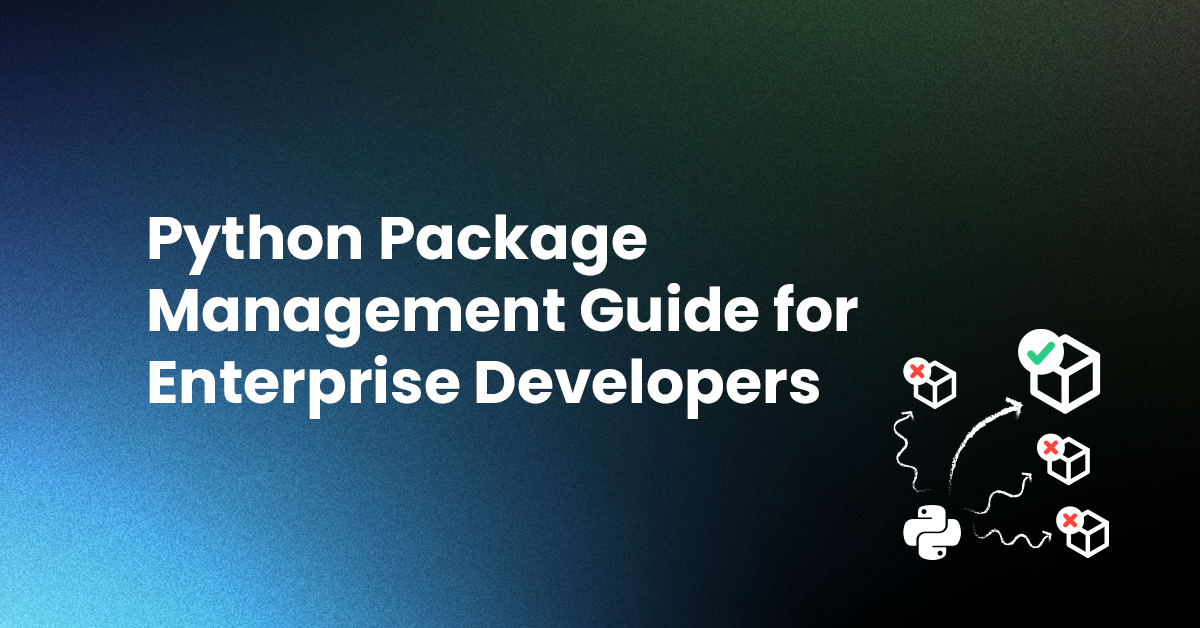Package management continues to evolve, but traditional Python package managers are slow to catch up. Python developers working in enterprises must deal with the consequences, including:
- Poor Environment Reproducibility – slightly different configurations across environments result in “works on my machine” issues and time wasted reproducing bugs, delaying time to market.
- Supply Chain Security – installing unsigned binaries with package managers is convenient, but risky. On the other hand, building packages from source for multiple operating systems is painful, especially if they require linked C libraries.
- Choosing the Right Packages/ Versions – how can you be sure you are always choosing the correct, approved open source components and versions required by your organization?
- Fixing Vulnerabilities – investigating vulnerabilities, patching/updating components and rebuilding environments are time and resource intensive, leaving less time for coding.
If you wrestle with any of these issues, this whitepaper is for you. It explains how adopting the ActiveState Platform will help you resolve these issues, allowing you to spend more time coding and less time managing Python packages and environments. All of which means you’re more likely to complete your sprint deliverables on time!











